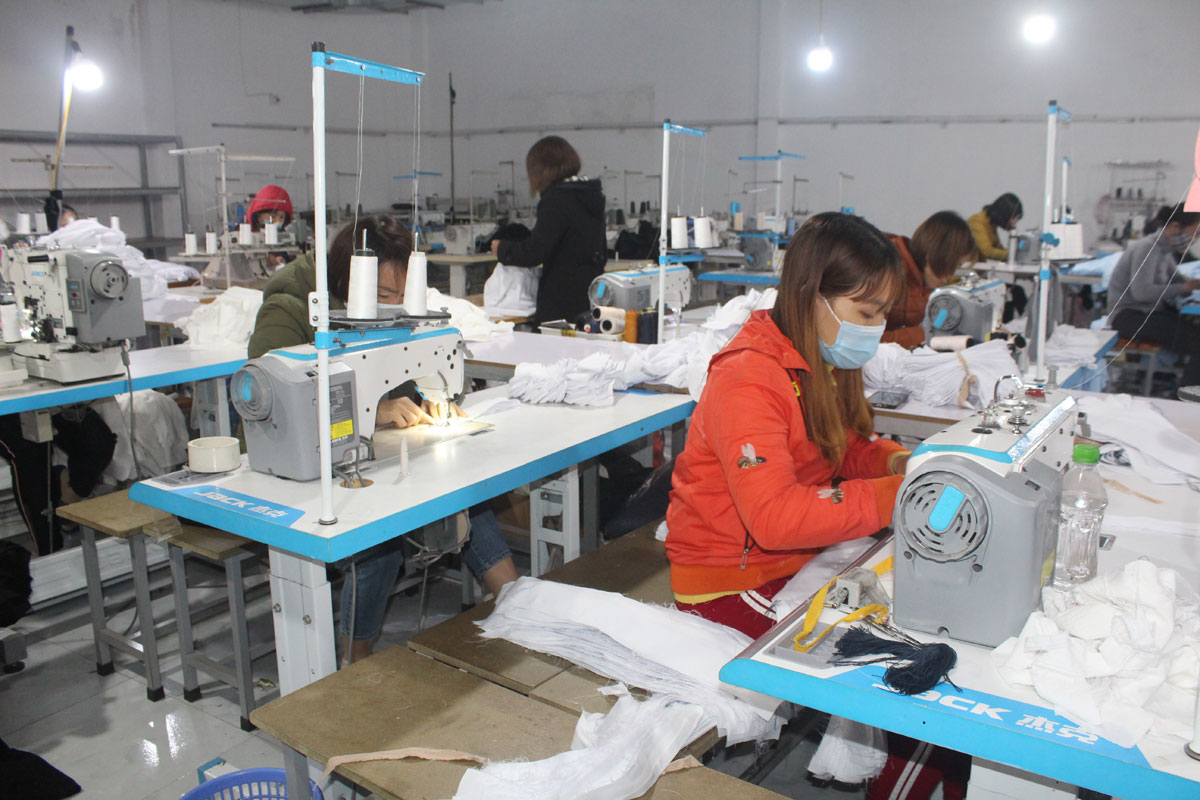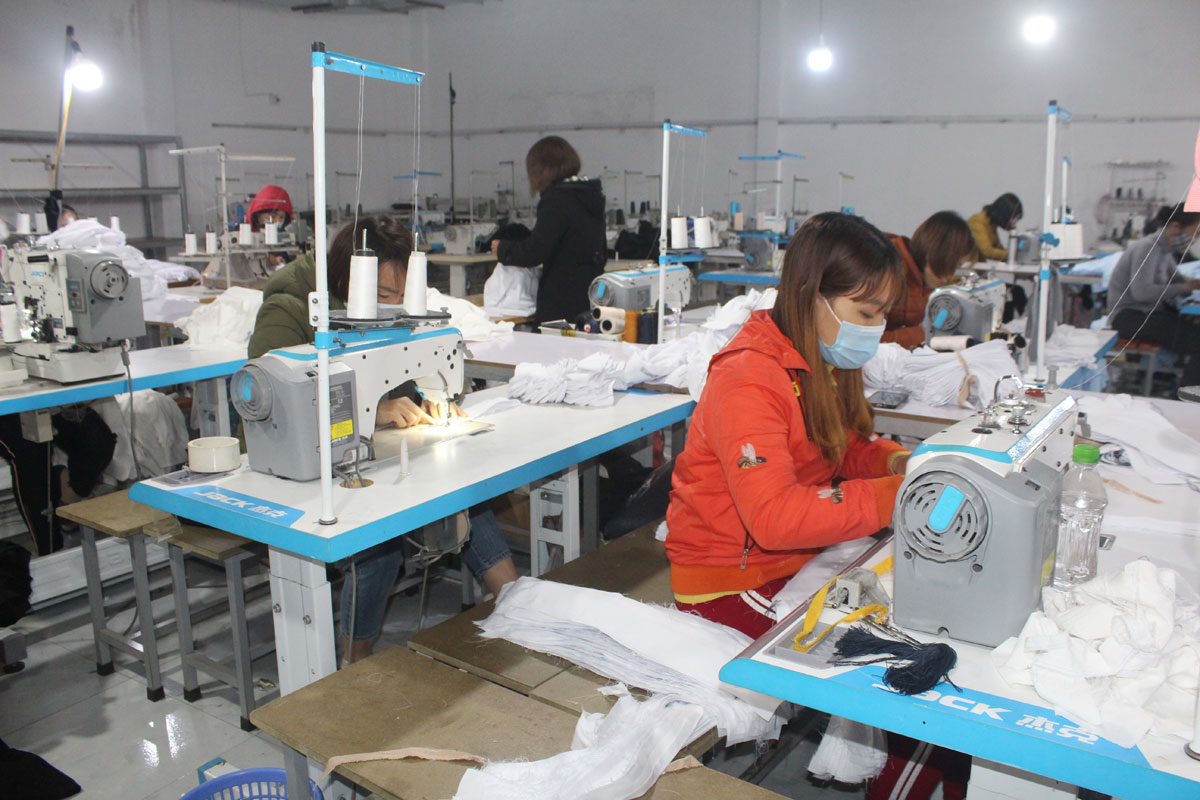
(HBO) - In 2020, industrial extension activities have helped Hoa Binh province’s rural industrial production facilities stabilise, expand and bolster operations, foster the industrial sector, economic restructuring and job creation, thereby raising income for local workhands.
 A project to facilitate the
application of modern machine and equipment in garment-textile has helped An
Phuc Garment Export JSC (Hang Tram township, Yen Thuy district) stabilise
production.
A project to facilitate the
application of modern machine and equipment in garment-textile has helped An
Phuc Garment Export JSC (Hang Tram township, Yen Thuy district) stabilise
production.
In 2020, industrial extension
activities have helped Hoa Binh province’s rural industrial production
facilities stabilise, expand and bolster operations, foster the industrial
sector, economic restructuring and job creation, thereby raising income for
local workhands.
The centre for
industrial extension and industrial development consultation has introduced
projects with bailout worth more than 3.86 billion VND (167,430 USD) in the
year.
It has also carried
out promotion projects with 3.3 trillion VND sourced from the national
industrial extension budget and 149.87 million VND from local reciprocal
capital. They included those bolstering the application of modern machine in
garment-textile, agro-forestry product processing and unbaked brick production,
among others.
The centre has
launched a project on the application of modern machine in farm produce
processing for VIBA Agricultural Company and Lac Thuy Foodstuff Company.
To discover and honour
quality products that are able to meet demand of customers at home and abroad,
the province last year carried out a project to select its typical rural industrial
products in 2020.
Fifteen industrial
production establishments in rural areas with 27 products registered to
participate. Last October, the provincial People’s Committee recognised 15
products as outstanding provincial-level rural industrial products in the year.
The extension projects
have proved effective in encouraging industrial establishments in rural areas
to proactively apply advanced equipment in production and improve technology, in
an effort to raise quality, value and competitiveness of products, along with
expanding markets for those facilities./.
According to data from the Hoa Binh Provincial Party Committee, the industrial production index for the first six months of 2025 is estimated to have increased by 20% compared to the same period last year. This marks the highest year-on-year growth rate for this period since 2020.
In the first six months of 2025, Hoa Binh province’s export turnover was estimated at 1.145 billion USD, marking an 18.11% increase compared to the same period in 2024. Import turnover was estimated at $ 804 million, a 17.15% increase, which helped the province maintain a positive trade balance.
The lives of the ethnic minority farmers in Tan Lac district have gradually improved thanks to the new directions in agricultural production. This is a testament to the collective strength fostered through the professional associations and groups implemented by various levels of the district’s Farmers’ Union.
With the motto the "product quality comes first,” after nearly one year of establishment and operation, Muong village’s Clean Food Agricultural and Commercial Cooperative, located in Cau Hamlet, Hung Son Commune (Kim Boi district), has launched reputable, high-quality agricultural products to the market that are well-received by consumers. The products such as Muong village’s pork sausage, salt-cured chicken, and salt-cured pork hocks have gradually carved out a place in the market and they are on the path to obtaining the OCOP certification.
In the past, the phrase "bumper harvest, rock-bottom prices" was a familiar refrain for Vietnamese farmers engaged in fragmented, small-scale agriculture. But today, a new spirit is emerging across rural areas of Hoa Binh province - one of collaboration, organisation, and collective economic models that provide a stable foundation for production.
Maintaining growing area codes and packing facility codes in accordance with regulations is a mandatory requirement for agricultural products to be eligible for export. Recently, the Department of Agriculture and Environment of Hoa Binh province has intensified technical supervision of designated farming areas and packing facilities to safeguard the "green passport" that enables its products to access international markets.



 A project to facilitate the
application of modern machine and equipment in garment-textile has helped An
Phuc Garment Export JSC (Hang Tram township, Yen Thuy district) stabilise
production.
A project to facilitate the
application of modern machine and equipment in garment-textile has helped An
Phuc Garment Export JSC (Hang Tram township, Yen Thuy district) stabilise
production.